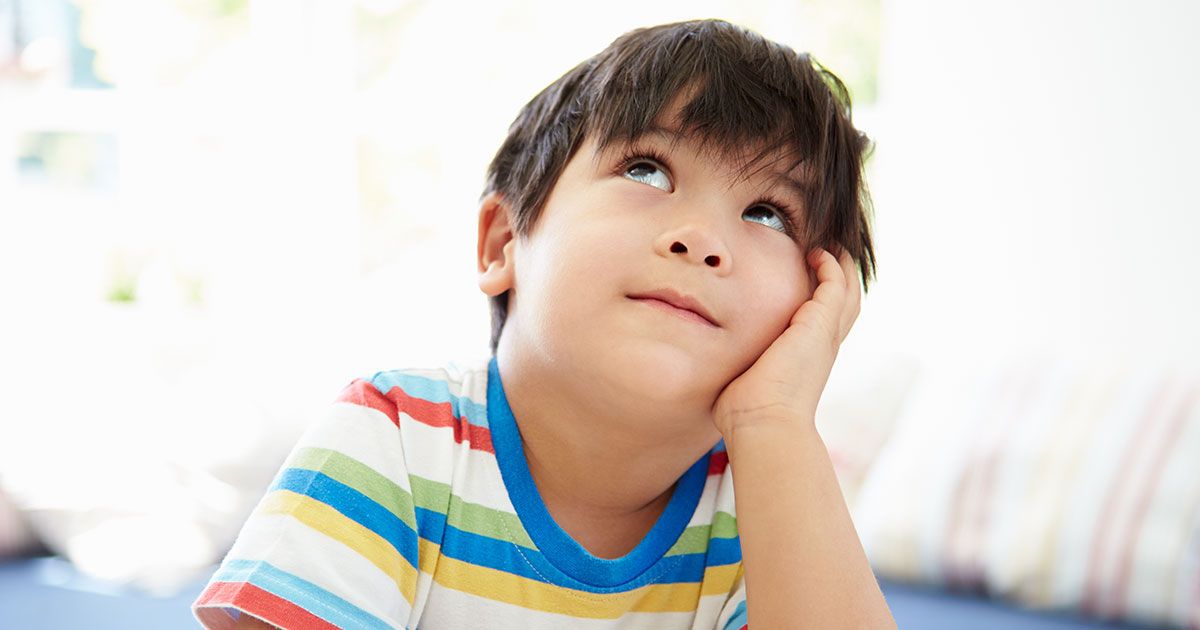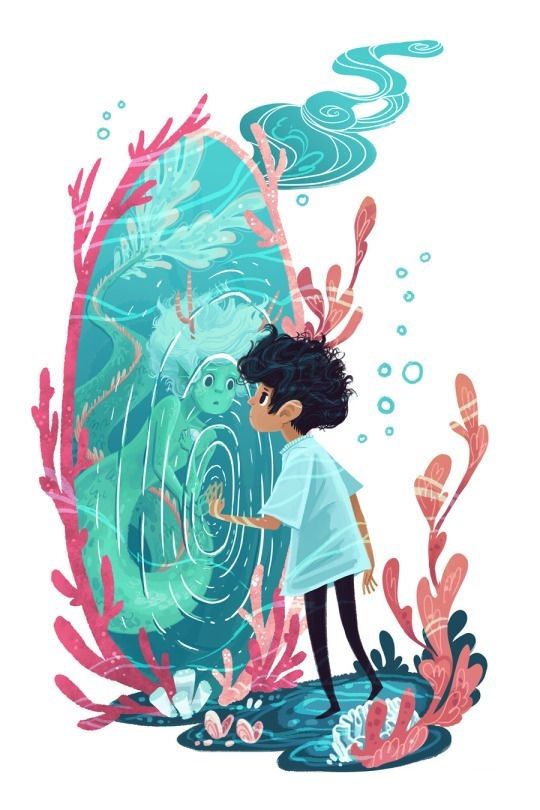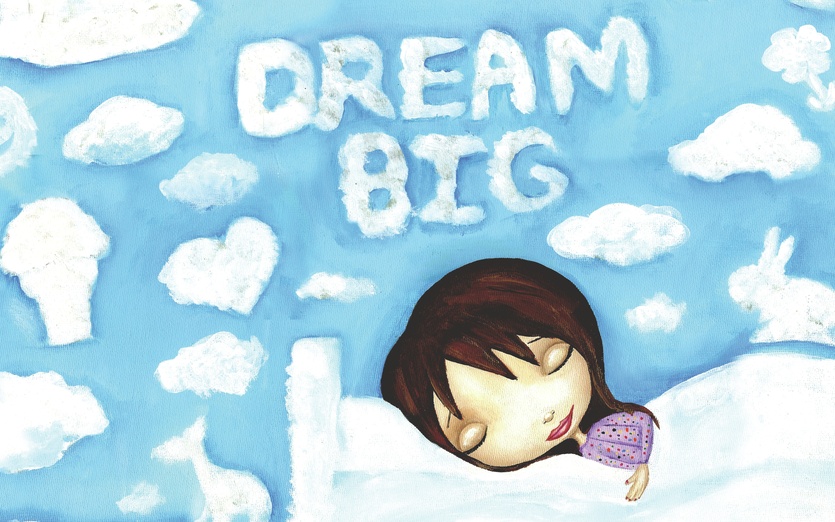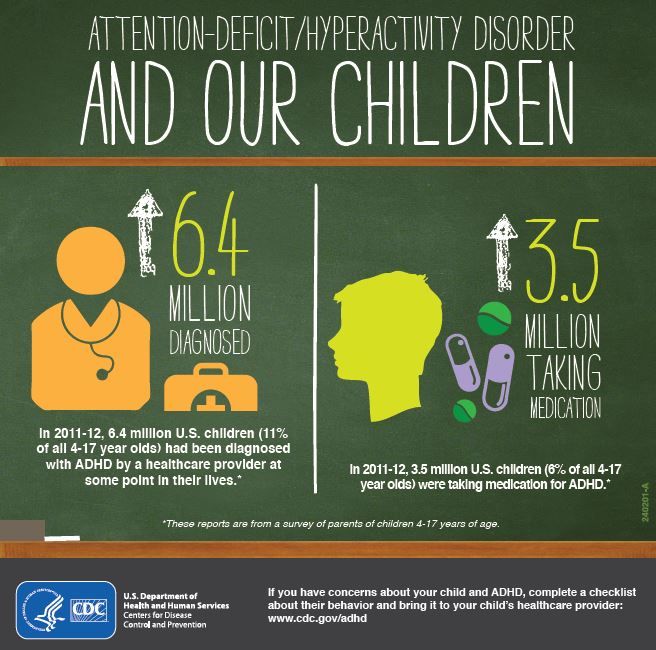Children who daydream
Help for the Daydreaming Child
Children who display disrupting behaviors, such as hyperactivity, talking when they are not supposed to, aggression, fidgeting, and other more challenging behaviors are often the children who receive the most attention in terms of being identified as a child in need of support services in school or as a child who’s parents are struggling to find what discipline and other parenting strategies to use at home. However, there are other children who receive less immediate attention from adults and the school systems because they are not displaying these more disruptive behaviors. Instead, these children often daydream which does not lead to many adults feeling the need to create any interventions for the kids. The kids who daydream may or may not need support services. As a parent or professional working with a child, it is important to consider whether a particular child’s daydreaming warrants further monitoring and possible intervention or not. Read the following information to find out more information about children and daydreaming.
PROS:
Amy Fries’ article, “The Power of Daydreaming” on Psychology Today presents the positive aspects of daydreaming. Fries makes reference to a few research studies that provide support for how daydreaming helps children develop social skills, creativity, and helps them to process information.
Daydreaming can help children to create, practice, and process dialogues they may have with others. Daydreaming, or the wandering mind, may provide the benefit of allowing a child to improve their creativity by its very nature of allowing the mind to free associate meaning the mind more freely flows from one thought to another which can lead to more creative ideas, more thinking “outside the box” (outside the current situation being experienced). Research has suggested that nighttime dreaming helps individuals to process information they learned during the day as well as process the experiences they had. This may also be true of daydreaming, as well.
Daydreaming is certainly not all bad. Adults should not attempt to stop children from daydreaming completely. According to Joseph Stromberg’s article, “The Benefits of Daydreaming,” at the Smithsonian.com, daydreamers may actually have better working memory particularly in the face of distraction which can definitely be a useful skill in these busy and sometimes chaotic times.
Adults should not attempt to stop children from daydreaming completely. According to Joseph Stromberg’s article, “The Benefits of Daydreaming,” at the Smithsonian.com, daydreamers may actually have better working memory particularly in the face of distraction which can definitely be a useful skill in these busy and sometimes chaotic times.
[image credit: Alive Campus]
CONS:
Certainly some daydreaming can be a symptom of certain mental health or neurological disorders (such as ADHD, schizophrenia, Autism, etc.). Some daydreaming can be problematic when it impairs functioning in academics, in social situations, or at home. Daydreaming can be a side effect of a learning disorder or may contribute to a learning disorder. Daydreaming may be problematic when it negatively impacts a child’s connection with others, as well.
Many teachers, parents, and others often attribute daydreaming to an attention disorder like Attention Deficit Hyperactivity Disorder (ADHD). However, this is not necessarily the case although some children with ADHD may also daydream.
However, this is not necessarily the case although some children with ADHD may also daydream.
When daydreaming occurs so frequently that your child or a child you work with is experiencing negative outcomes frequently within any area of life, it is worth taking a serious look at the cause and possible solutions for addressing daydreaming.
—————————–
As mentioned above, daydreaming is not a problem. The problem occurs when daydreaming impairs a person’s functioning in an area of life that creates significant problems for that individual in comparison to most of their peers. Even then, without knowing your particular, unique situation, I can’t say that daydreaming is for sure a problem. Daydreaming can be beneficial to a person’s overall well-being. Trying to eliminate daydreaming may not be the answer. The answer is more likely to help a child know when and how much to daydream and to know how to snap out of daydreaming when necessary. For instance, a child’s educational performance may suffer tremendously if they daydream during all reading lessons for weeks in a row.
For instance, a child’s educational performance may suffer tremendously if they daydream during all reading lessons for weeks in a row.
We all daydream to an extent. The voice in our heads that gives us an idea, that plans ahead, that decides what’s for dinner, or that replays a situation that occurred to us previously in the day or further in the past are all forms of daydreaming. Our minds are focusing on something else besides the particular situation we are currently in. So most of us daydream regularly but daydreaming is only problematic for some people.
Sometimes people daydream when they are in a situation that is not as entertaining, not as interesting, not as attention-maintaining, or not as reinforcing as what is necessary to hold their minds to remain focused on the current situation. It may be more difficult for some people to remain “mindful” in the present moment particularly in these less preferred situations.
If daydreaming is a problem for a child you know, consider the following tips:
- Don’t try to stop a daydreamer from daydreaming (not completely anyway).
 Instead, teach the child to become more self-aware by helping them to catch themselves daydreaming and to learn the skills to re-focus their attention.
Instead, teach the child to become more self-aware by helping them to catch themselves daydreaming and to learn the skills to re-focus their attention. - Teach the child to monitor their own behavior. One way to do this is described by Additude Magazine. The idea was also introduced to me by my supervisor at the Autism Center of Central Michigan, Leasa Androl, MA, BCBA. The technique is to provide the child with a device that will vibrate or make a sound every so many seconds or minutes (whatever amount of time you decide for your child). When the device vibrates or makes a sound, the child is to mark on a provided piece of paper or index card whether, in that moment, he was daydreaming (or paying attention to the task whether it’s his homework or listening to the teacher). The parent can help the child to learn how to do this and then he can try it on his own.
- Practice (or have the child practice) “mindful breathing” to help keep daydreaming to a minimum.
 To do this, one study by Smallwood and Schooler (2012) cited by Urge Surf suggests focusing on your breathe for eight minutes a day. When your mind wanders from the breathe, bring your attention back to your breathe.
To do this, one study by Smallwood and Schooler (2012) cited by Urge Surf suggests focusing on your breathe for eight minutes a day. When your mind wanders from the breathe, bring your attention back to your breathe. - Consider the child’s environment & your teaching strategies. Are there things that can be changed in the child’s environment to help them daydream less often? For instance, if you are a teacher or an educator of some sort, can the curriculum be provided in a more engaging manner? (Please don’t take offense if you are a teacher. I am sure that most teachers and parents do the best job that they can and teachers are not always able to keep every single child engaged at all times.) If you are a parent, are there things you can do for your child that will enhance their focus during homework time, such as make it a race to finish the homework in order to earn a reward?
- Improve nutrition. Healthy foods are, of course, good for many reasons.
 Eating nutritious foods can certainly help a child to have better control over their attention as well as have more focus on the task at hand throughout the day.
Eating nutritious foods can certainly help a child to have better control over their attention as well as have more focus on the task at hand throughout the day. - Get enough rest. Being sleep deprived can also lead to more daydreaming. Sleep deprivation can make it easier to drift off into one’s own mind especially in a not so entertaining environment.
Check out: Taking Charge of ADHD, Third Edition: The Complete, Authoritative Guide for Parents for ideas on helping kids with ADHD who daydream and have difficulty with focusing.
Another helpful resource that could be used in a professional setting or at home with kids who struggle with attention and daydreaming is The ADHD Workbook for Kids: Helping Children Gain Self-Confidence, Social Skills, and Self-Control (Instant Help)
[image credit: Tyler Olson – Fotolia.com]
If you have other ideas about children who daydream often, please feel free to comment below.
Help for the Daydreaming Child
Children who display disrupting behaviors, such as hyperactivity, talking when they are not supposed to, aggression, fidgeting, and other more challenging behaviors are often the children who receive the most attention in terms of being identified as a child in need of support services in school or as a child who’s parents are struggling to find what discipline and other parenting strategies to use at home. However, there are other children who receive less immediate attention from adults and the school systems because they are not displaying these more disruptive behaviors. Instead, these children often daydream which does not lead to many adults feeling the need to create any interventions for the kids. The kids who daydream may or may not need support services. As a parent or professional working with a child, it is important to consider whether a particular child’s daydreaming warrants further monitoring and possible intervention or not. Read the following information to find out more information about children and daydreaming.
However, there are other children who receive less immediate attention from adults and the school systems because they are not displaying these more disruptive behaviors. Instead, these children often daydream which does not lead to many adults feeling the need to create any interventions for the kids. The kids who daydream may or may not need support services. As a parent or professional working with a child, it is important to consider whether a particular child’s daydreaming warrants further monitoring and possible intervention or not. Read the following information to find out more information about children and daydreaming.
PROS:
Amy Fries’ article, “The Power of Daydreaming” on Psychology Today presents the positive aspects of daydreaming. Fries makes reference to a few research studies that provide support for how daydreaming helps children develop social skills, creativity, and helps them to process information.
Daydreaming can help children to create, practice, and process dialogues they may have with others. Daydreaming, or the wandering mind, may provide the benefit of allowing a child to improve their creativity by its very nature of allowing the mind to free associate meaning the mind more freely flows from one thought to another which can lead to more creative ideas, more thinking “outside the box” (outside the current situation being experienced). Research has suggested that nighttime dreaming helps individuals to process information they learned during the day as well as process the experiences they had. This may also be true of daydreaming, as well.
Daydreaming, or the wandering mind, may provide the benefit of allowing a child to improve their creativity by its very nature of allowing the mind to free associate meaning the mind more freely flows from one thought to another which can lead to more creative ideas, more thinking “outside the box” (outside the current situation being experienced). Research has suggested that nighttime dreaming helps individuals to process information they learned during the day as well as process the experiences they had. This may also be true of daydreaming, as well.
Daydreaming is certainly not all bad. Adults should not attempt to stop children from daydreaming completely. According to Joseph Stromberg’s article, “The Benefits of Daydreaming,” at the Smithsonian.com, daydreamers may actually have better working memory particularly in the face of distraction which can definitely be a useful skill in these busy and sometimes chaotic times.
[image credit: Alive Campus]
CONS:
Certainly some daydreaming can be a symptom of certain mental health or neurological disorders (such as ADHD, schizophrenia, Autism, etc. ). Some daydreaming can be problematic when it impairs functioning in academics, in social situations, or at home. Daydreaming can be a side effect of a learning disorder or may contribute to a learning disorder. Daydreaming may be problematic when it negatively impacts a child’s connection with others, as well.
). Some daydreaming can be problematic when it impairs functioning in academics, in social situations, or at home. Daydreaming can be a side effect of a learning disorder or may contribute to a learning disorder. Daydreaming may be problematic when it negatively impacts a child’s connection with others, as well.
Many teachers, parents, and others often attribute daydreaming to an attention disorder like Attention Deficit Hyperactivity Disorder (ADHD). However, this is not necessarily the case although some children with ADHD may also daydream.
When daydreaming occurs so frequently that your child or a child you work with is experiencing negative outcomes frequently within any area of life, it is worth taking a serious look at the cause and possible solutions for addressing daydreaming.
—————————–
As mentioned above, daydreaming is not a problem. The problem occurs when daydreaming impairs a person’s functioning in an area of life that creates significant problems for that individual in comparison to most of their peers. Even then, without knowing your particular, unique situation, I can’t say that daydreaming is for sure a problem. Daydreaming can be beneficial to a person’s overall well-being. Trying to eliminate daydreaming may not be the answer. The answer is more likely to help a child know when and how much to daydream and to know how to snap out of daydreaming when necessary. For instance, a child’s educational performance may suffer tremendously if they daydream during all reading lessons for weeks in a row.
Even then, without knowing your particular, unique situation, I can’t say that daydreaming is for sure a problem. Daydreaming can be beneficial to a person’s overall well-being. Trying to eliminate daydreaming may not be the answer. The answer is more likely to help a child know when and how much to daydream and to know how to snap out of daydreaming when necessary. For instance, a child’s educational performance may suffer tremendously if they daydream during all reading lessons for weeks in a row.
We all daydream to an extent. The voice in our heads that gives us an idea, that plans ahead, that decides what’s for dinner, or that replays a situation that occurred to us previously in the day or further in the past are all forms of daydreaming. Our minds are focusing on something else besides the particular situation we are currently in. So most of us daydream regularly but daydreaming is only problematic for some people.
Sometimes people daydream when they are in a situation that is not as entertaining, not as interesting, not as attention-maintaining, or not as reinforcing as what is necessary to hold their minds to remain focused on the current situation. It may be more difficult for some people to remain “mindful” in the present moment particularly in these less preferred situations.
It may be more difficult for some people to remain “mindful” in the present moment particularly in these less preferred situations.
If daydreaming is a problem for a child you know, consider the following tips:
- Don’t try to stop a daydreamer from daydreaming (not completely anyway). Instead, teach the child to become more self-aware by helping them to catch themselves daydreaming and to learn the skills to re-focus their attention.
- Teach the child to monitor their own behavior. One way to do this is described by Additude Magazine. The idea was also introduced to me by my supervisor at the Autism Center of Central Michigan, Leasa Androl, MA, BCBA. The technique is to provide the child with a device that will vibrate or make a sound every so many seconds or minutes (whatever amount of time you decide for your child). When the device vibrates or makes a sound, the child is to mark on a provided piece of paper or index card whether, in that moment, he was daydreaming (or paying attention to the task whether it’s his homework or listening to the teacher).
 The parent can help the child to learn how to do this and then he can try it on his own.
The parent can help the child to learn how to do this and then he can try it on his own. - Practice (or have the child practice) “mindful breathing” to help keep daydreaming to a minimum. To do this, one study by Smallwood and Schooler (2012) cited by Urge Surf suggests focusing on your breathe for eight minutes a day. When your mind wanders from the breathe, bring your attention back to your breathe.
- Consider the child’s environment & your teaching strategies. Are there things that can be changed in the child’s environment to help them daydream less often? For instance, if you are a teacher or an educator of some sort, can the curriculum be provided in a more engaging manner? (Please don’t take offense if you are a teacher. I am sure that most teachers and parents do the best job that they can and teachers are not always able to keep every single child engaged at all times.) If you are a parent, are there things you can do for your child that will enhance their focus during homework time, such as make it a race to finish the homework in order to earn a reward?
- Improve nutrition.
 Healthy foods are, of course, good for many reasons. Eating nutritious foods can certainly help a child to have better control over their attention as well as have more focus on the task at hand throughout the day.
Healthy foods are, of course, good for many reasons. Eating nutritious foods can certainly help a child to have better control over their attention as well as have more focus on the task at hand throughout the day. - Get enough rest. Being sleep deprived can also lead to more daydreaming. Sleep deprivation can make it easier to drift off into one’s own mind especially in a not so entertaining environment.
Check out: Taking Charge of ADHD, Third Edition: The Complete, Authoritative Guide for Parents for ideas on helping kids with ADHD who daydream and have difficulty with focusing.
Another helpful resource that could be used in a professional setting or at home with kids who struggle with attention and daydreaming is The ADHD Workbook for Kids: Helping Children Gain Self-Confidence, Social Skills, and Self-Control (Instant Help)
[image credit: Tyler Olson – Fotolia.com]
If you have other ideas about children who daydream often, please feel free to comment below.
What our children dream about
14,028
Parents
“What is your biggest dream?” For some, this question forced them to think, while others immediately gave out the answer. Some clarified: “Speak about a realizable or unrealizable dream?” or “Maybe a few?” The little ones told in detail, sometimes they lacked words, and they began to draw.
The schoolchildren seemed to have made up their minds a long time ago and were now presenting their dreams to me clearly and seriously. With each new story, I felt more and more that in children's dreams there is a “double bottom”: this is not a whim, but something deep, personal, a reflection of such needs that cannot be described in any other way...
Parents used to leave the room where we were talking, but then they would ask anxiously: “Well, what? What did he say?" And often sincere children's answers caused them bewilderment, annoyance, disappointment. It turns out that the dreams of our children do not always suit us. Why?
Why?
From fantasy to dream
In the dreams entrusted to me, there were echoes of fairy tales, films, family realities and TV news, other people's experience and my own feelings. One child dreams of wings like a fairy, another wants to “learn how to draw cartoons” - is there a significant difference between these two desires?
“Yes, there is,” says Jungian analyst Anna Skavitina. - The fact is that we often confuse dreams and fantasies. Fairy wings are more of a fantasy, but learning how to make cartoons is a real, “realizable” dream. It has a certain goal and attempts to somehow get closer to this goal, a willingness to act.
To fulfill his dream of animation, the boy comes up with a script and learns to draw. And if a girl dreams of becoming a ballerina, she tries to dance to the music and goes on pointe shoes, imagines herself in a ballet tutu, asks to send her to a ballet school. But such constructive dreams do not arise immediately.
At first, fantasy and dream are one and the same, because a small child in his imagination “really” talks to a wizard in the forest, understands the language of animals, and flies.
“Children can live in the world of their dreams, unlike adults,” says child psychologist Marina Bebik. “They “live” their fantasies, they can become kings, princes, fairies, play different roles at the same time, and for them this is reality ...”
The inability to distinguish between fantasy and reality persists until the child is 7–8 years old, says educator and psychologist Ed Le Champ*. But even then, the work of the imagination helps to realize and accept one's own feelings, to survive the inevitable periods of hardship, to learn how to act in the real world.
“Today's children spend most of their time in a state of frantic activity, and they simply need to replenish their spiritual resources through fantasy,” emphasizes Eda Le Chan. “In addition, fantasy is a necessary condition for liberation from the constant control and interference of adults.”
The Most Desirable
“A child grows, knows himself better, he has more desires, so some dreams are replaced by others,” explains child psychotherapist Daria Krymova. “Dreams allow children to feel themselves, to choose a direction – where to move.”
“Dreams allow children to feel themselves, to choose a direction – where to move.”
At different ages, children dream of different things - to fly like Peter Pan, to meet a handsome prince, to receive a radio-controlled helicopter or a set of dolls. But it happens that even in early childhood, a child dreams only of what is quite achievable: at four years old he wants a children's car, at five he wants a bicycle, at seven he wants a game console. What does such pragmatism mean?
“This is a sign that the child's imagination is underdeveloped,” says Darya Krymova. “These kids rely entirely on logic. They can be helped by developing emotions, sensations, intuition. Or they simply do not have the habit of dreaming about the unrealizable: for example, because their parents do not like to dream, or they have enough fantasies in books, films and games.
Hidden messages
A dream tells not only about the experience and inclinations of the child, but also about what worries him and what he lacks.
“If he dreams of living in Ancient Egypt or meeting dinosaurs, it means that he lacks something in the present, and he “escapes” to the past, where he finds something good,” explains Anna Skavitina. “He needs to be helped to see the good in the present, so that it gives him the strength to move forward.”
“A ten-year-old girl who dreams of having friends is a reason to pay attention to the situation in the classroom and figure out what prevents her from making friends,” Daria Krymova develops the theme. “Perhaps she has experienced stress and needs help to build relationships with her peers.”
One child may not be sure of himself and therefore wants to become strong in his dreams, another is lonely after the birth of a brother or sister and he dreams of a friend, an interlocutor...
“When a magician or a good fairy appears in his stories , this may mean that he is looking for protection and support. I would ask a child who wants to meet a magician why he wants to, - continues Marina Bebik, - and, perhaps, I would get an answer: "Because he is omnipotent. " This means that the child most likely feels helpless, he lacks self-confidence. Playing with him, an adult is able to help him live this meeting with a wizard, to fulfill his dream. And the child will gain confidence that he can change something in his life.
" This means that the child most likely feels helpless, he lacks self-confidence. Playing with him, an adult is able to help him live this meeting with a wizard, to fulfill his dream. And the child will gain confidence that he can change something in his life.
The area of freedom
“Tell me what you dream about, and I will tell you what you will become,” suggests a cunning witch in an Italian fairy tale. But we are mistaken in taking seriously the firm decision made at the age of 5-7 to become a banker, super spy or traveler.
A girl who wants to understand the language of animals will not necessarily become a zoologist, and a boy who wants to see volcanoes will be interested in constellations with the same passion in a year.
“If your daughter wants to become a ballerina now, this does not mean that she will become one,” comments Anna Skavitina. “But she has a desire, and it is very important for her growing up. Desire leads her to the goal, helps her find ways to fulfill her dream.
While dreaming, children develop their imagination and learn to act, discover the limits of the possible and find what they really like. That is why it is so important to take their dreams seriously, to be able to hear children, to talk to them about what inspires them. In a word, join the game, or at least not deny and not destroy the world of their fantasies.
Why are we sometimes confused and disappointed by childhood dreams?
“It often seems to parents that a child’s dream is unsuitable (stupid, unrealizable, ordinary) or that it’s time to finally stop believing in wizards, fairies and talking animals and get down to serious business,” explains Anna Skavitina. - Or they suddenly realize that their child lacks affection, sympathy, attention ... And they have to admit that they are not good enough, and this is very difficult. If, for example, the son's dreams seem meaningless to the father, he is frightened: “I am educating him wrong, it would be better if he dreamed of becoming rich and famous or studying the best!”
We are annoyed if the dreams of a son or daughter are not similar to ours, and we are unhappy if they coincide with what we ourselves dreamed of in childhood: what if he repeats our mistakes and failures?
Familiar or strange, in any case, dreams are an area of freedom that we can neither control nor direct. But thanks to them, we can get to know our children better, get closer to them, and strengthen mutual trust. Children are waiting for our support, and we should carefully consider even their most incredible ideas.
But thanks to them, we can get to know our children better, get closer to them, and strengthen mutual trust. Children are waiting for our support, and we should carefully consider even their most incredible ideas.
We can't always buy the desired toy, let alone resurrect Michael Jackson or teach the language of animals, but we can invite a fairy to a holiday or arrange a flight on a dizzying attraction. Didn't we all want in childhood to be in the place of the Kid, who was finally given a dog?
“It is important for a child to have the experience that dreams come true,” concludes Daria Krymova. “Then it will be easier for him to endure the inevitable disappointments.”
* Author of When Your Child Drives You Crazy (Prime EUROSIGN, 2008).
Photo source: GRIGORY POLYAKOVSKY
New on the site
“I want to cry as soon as I hear “Tired toys are sleeping”: what is the reason for such a reaction?”
“My father annoys me with his anxiety”
Justify or deny: Strategies for killer mothers — 6 real-life examples harm?
“We call the guy every day, but he says he doesn't want to get attached. How to know his true feelings?
How to know his true feelings?
How to live with mental peculiarities: 7 books about disorders, people and their struggles
8 travel films that change lives
What modern children dream of — Amurskaya Pravda
SocietyMany adults are sure that modern children are increasingly dreaming about material things, the changed life itself is pushing them to this. There are so many things and toys around that you can dream about, so they ask their parents for a new computer or fancy cell phone. However, in fact, the guys who shared their dreams surprised and delighted: there are so many unusual, interesting thoughts in their smart and bright heads. It turns out that our children often think about serious and important things - about the world, family and friendship.
Suren, 11 years old:
— It would be good if one could live forever and not grow old, remain beautiful, rich, have many friends, relatives. I want to see what will happen in the future, new discoveries. I think in the future cars will fly, it will be possible to teleport from city to city so as not to fly on planes.
I want to see what will happen in the future, new discoveries. I think in the future cars will fly, it will be possible to teleport from city to city so as not to fly on planes.
Arina, 12 years old:
- I dream that all people on the whole Earth be healthy and happy. It seems to me that every child dreams of this. So that everything in his family was good and around too.
Roma, 8 years old:
— To be honest, I love cars very much. I really want a good Bentley or BMW. I read a lot of books about cars, it just became very interesting to me - I want to delve into the engine myself. Maybe I'll get a car myself.
Diana, 13 years old:
- I dream of traveling, so far I have not been anywhere but China. I really want to visit Paris. The city is beautiful and romantic. I would like to see the Eiffel Tower.
Oleg, 12 years old:
- I have many dreams. I want to be a footballer, I now play football in the yard. Next year I will go to the sports school "Youth". I'll be the passer. I dream of getting a million, a million dollars is better. I would buy an apartment, a car. And so that dad and mom are healthy and live long.
Next year I will go to the sports school "Youth". I'll be the passer. I dream of getting a million, a million dollars is better. I would buy an apartment, a car. And so that dad and mom are healthy and live long.
Lisa, 9 years old:
- I dream of learning to fly. Maybe in the future it will be possible, maybe wings will be invented. I want to touch the clouds and feel how they feel. I have already flown on an airplane, I really liked it.
Anya, 13 years old:
- In general, my dream is to fly in a hot air balloon. Until I tried to fly on anything, I generally study in a military-patriotic club.
Nastya, 4 years old:
- I don't know what a dream is. I would like my mom and dad to buy me a kitten mask and a lot of horses. I love riding them! And I also want to stay with my grandmother longer and go to the Islands.
Ilya, 7 years old:
- I dream of a computer. I want my own, my brother has it, but I don't. I dream of nothing more.
I want my own, my brother has it, but I don't. I dream of nothing more.
Yana, 6 years old:
- I dream of a beautiful windbreaker. I also want Philly Castle. And I ask my dad and mom for all sorts of sweets, and also a brother or, even better, a sister.
Alice, aged 11:
- It is difficult to say your dream directly. But to be honest, my dream is a dog. I dream that I will have a pug, I really like this breed. I myself think that now it is difficult, but in the future I think there will definitely be a dog.
Guzel, 13 years old:
- It's hard to say about your dream, you can dream about different things. But now I'm thinking about world peace. Mom and dad watch the news, show Ukraine, there is a war going on there. I would like to somehow smooth it out. Today I have one dream come true - I got together with my friends, this does not always work out. We had a good time. Friendship is also a dream.














